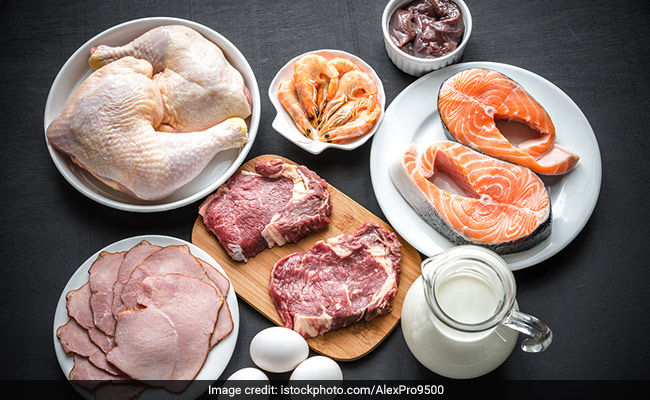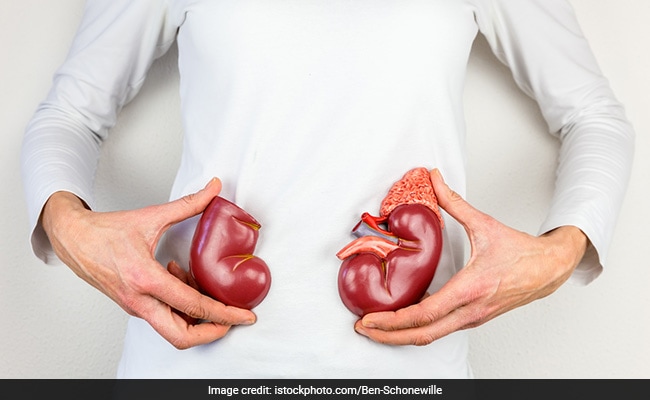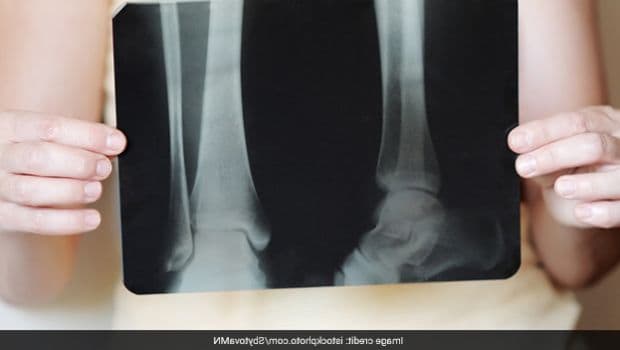Consuming more than 2 grams of protein per kg is considered excessive. Click here to know the many side effects of consuming too much proteins.

Excessive intake of protein can backfire for your health
HIGHLIGHTS
- A high-protein diet induces weight loss and promotes lean muscle mass
- Consuming more than 2 grams of protein per kg is considered excessive
- Eating too much protein increases the nitrogen content in your blood
Proteins are the building blocks of life; it is needless to explain why you must include more proteins in your diet. 'More' is usually perceived as 'eat as much as possible'. So people feel end up filling on this macronutrient indefinitely; little do they know that even protein could lead to side effects. Yes, there is a reason why nutritionists ask you to never exceed the recommended protein intake. A high-protein diet induces weight loss and promotes lean muscle mass. But there is a certain threshold beyond which this essential nutrient starts backfiring on your health. So how much protein is too much?
Also read: Can you suggest a protein rich diet for a vegetarian?
On an average, men should consume 56 grams of protein and women should consume 46 grams of protein. You can also calculate it in terms of your body weight. Adults should stick to 0.8 grams of protein per kg of body weight. Consuming more than 2 grams of protein per kg is considered excessive. So now that you know how much protein is safe, learn about the many side effects of consuming too much of it.
Also read: 5 Foods That Have More Proteins Than Eggs
So let's take a look at the 6 most important side effects of eating too much protein.
1. Weight gain
A diet rich in proteins helps you lose weight. But when this exceeds the safe limit, it may result in weight gain. In the long run, a diet high in terms of protein may result in weight gain. When the body excretes an excess of amino acids, the surplus is stored as fat. This happens especially when you increase your calorie intake just to consume more proteins. According to a 2016 study, weight gain happens when proteins are used to replace carbs and not fat.

Also read: Can you suggest a diet for a kidney transplant recipient?
2. Constipation
High-protein diets which replace carbs are low in terms of fiber. As a result, there is a risk of constipation. In a 2003 study, 44% people reported constipation due to increased consumption of proteins. To combat this, drink more water and increase your fiber intake.

Also read: 7 Best Protein-Rich Foods For Stronger Bones
3. Diarrhea
Combining too much dairy with low fiber can result in diarrhea. The effect is more relevant if you are lactose intolerant. To avoid this from happening, drink more water, avoid caffeine and increase your fiber intake.
Also read: How To Choose The Right Protein Powder For Yourself
Consuming more proteins is unlikely to create kidney problems in healthy people. However, the ones with kidney disease may expose their kidneys to some damage. Eating too much protein increases the nitrogen content in your blood which puts more pressure on your kidneys to filter your blood. Over time, this can expose your kidneys to some serious damage.

Also read: Can you please provide a low protein diet for a liver cirrhosis patient?
5. Loss of calcium
According to a 2013 study, high levels of protein are linked to loss of calcium in the body. This is sometimes linked to osteoporosis and poor bone health. This happens because consuming too much protein induces your body to excrete calcium through urine. As a result, your dietary requirement of calcium increases. So if you do not increase your calcium intake to make up for this loss, you increase your risk of osteoporosis later in life. So the more protein you take the more calcium you will lose.

Also read: 7 Little Known Side Effects Of Whey Protein
6. Dehydration
To break down protein in the body, put it to use and to excrete the waste, a lot of water is required. So if you do not drink enough water to make up for the requirement, you may feel dehydrated. To prevent this from happening, you must increase your water intake when you increase your protein intake, to make up for the loss. This loss of water will start reflecting on your skin and hair.

Photo Credit: iStock
Disclaimer: This content including advice provides generic information only. It is in no way a substitute for qualified medical opinion. Always consult a specialist or your own doctor for more information. NDTV does not claim responsibility for this information.
DoctorNDTV is the one stop site for all your health needs providing the most credible health information, health news and tips with expert advice on healthy living, diet plans, informative videos etc. You can get the most relevant and accurate info you need about health problems like diabetes, cancer, pregnancy, HIV and AIDS, weight loss and many other lifestyle diseases. We have a panel of over 350 experts who help us develop content by giving their valuable inputs and bringing to us the latest in the world of healthcare.














